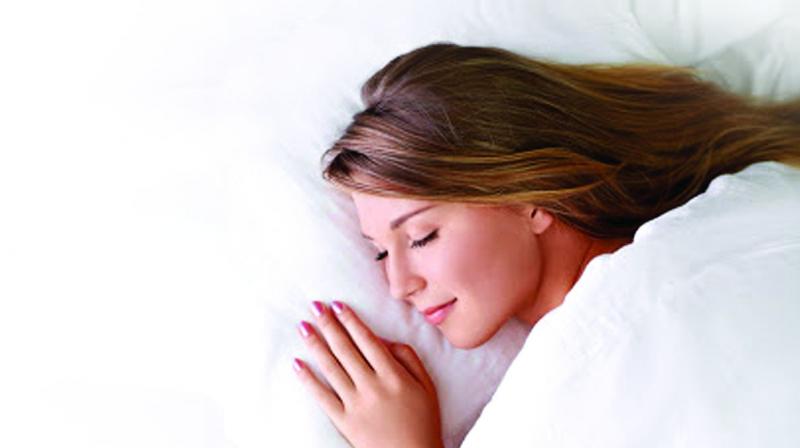Gene responsible for sleep disorders
Biological clock for sleep is not in the brain but in muscle.

Hyderabad: Recent research indicates that the gene Bmal 1 is responsible for sleep disorders and it is not in the brain but is in the muscle. The research in mice gives a new perspective on sleep disorders, but at present 80 per cent of sleep problems are due to environmental issues rather than biological factors. The biological clock is a very important aspect of the sleep problem. However, there are many other factors that contribute to insomnia like lifestyle.
Missing a meal or eating too late at night can cause sleep problems. Dr Sai Praveen Haranath, sleep specialist at Apollo Hospitals said, “The biological clock is only one aspect and it is perhaps the most prominent when we suffer from jet lag. But when we are investigating patients for lack of sleep, it is found that environmental factors, inadequate food or perhaps stimulants like coffee or other caffeine products taken hours before sleeping are found to be major causes of severe sleep disturbance.”
At present the white light from phones, tablets, laptops and computer is found to affect sleep in most patients. White artificial light suppresses the production of melatonin in the brain’s pineal gland which is responsible, among other things, for regulation of the biological clock. Dr Daljeet Kaur, senior consultant and sleep specialist said, “The suppression of the biological clock can also be due to health problems like obstructive sleep apnea, heart and lung problems, thyroid and psychiatric illness. Hence the discovery of the gene can throw light into these conditions too. But often it has been found that research on mice, does not provide the same result in humans. Hence we have to wait for further research to find out what is affecting the quality of sleep.”
Experts state that the plus point of the Bmal 1 gene is that it has shown that the biological clock for sleep is not in the brain but elsewhere. This is an achievement because it shifts focus from the brain to the muscle to understand the alterations in the gene for deprivation of sleep. Sleep deprivation is a major focus of research worldwide as cases of lack of sleep in sleep laboratories are bringing in patients of different age groups. The lack of sleep or break in the normal pattern of sleeping is leading to the early advent of cardiovascular diseases, strokes and impairs the quality of life.
No single cause for sleeplessness: Doctors
There is no single cause for sleep disorders. It is brought about by a combination of factors like str-ess, lifestyle and work shifts. Senior sleep specialist Dr Srinivas Kishore explained, “The problem of insomnia was thought to occur only in the 6th and 7th decade of life when the biological clock gets affected by aging. But clinical evaluations show that even teens are suffering which means that lifestyle and environmental factors have a major role in sleep deprivation.”
At present, the focus of researchers is on understanding the causes of sleep deprivation. In teenagers the major cause is working, gaming or chatting at night whereby sleep gets delayed leading to sleepiness in the morning. This pattern is found to alter their systems whereby messages to the brain are in constant conflict with the physical body leading to diseases.
Experts state that when a conducive environment is provided the brain and body function comes back to normal. This shows that habits are the main reason for lack of sleep. Dr Kishore said, “Age related degeneration sho-ws that sleep is affected by changes in the body. In the young body it was found that alterations are due to bad habits and the environment. Reversal is possible if identified in time but treatments are lengthy. Apart from medication changes in habits are most important for good sleep.”

